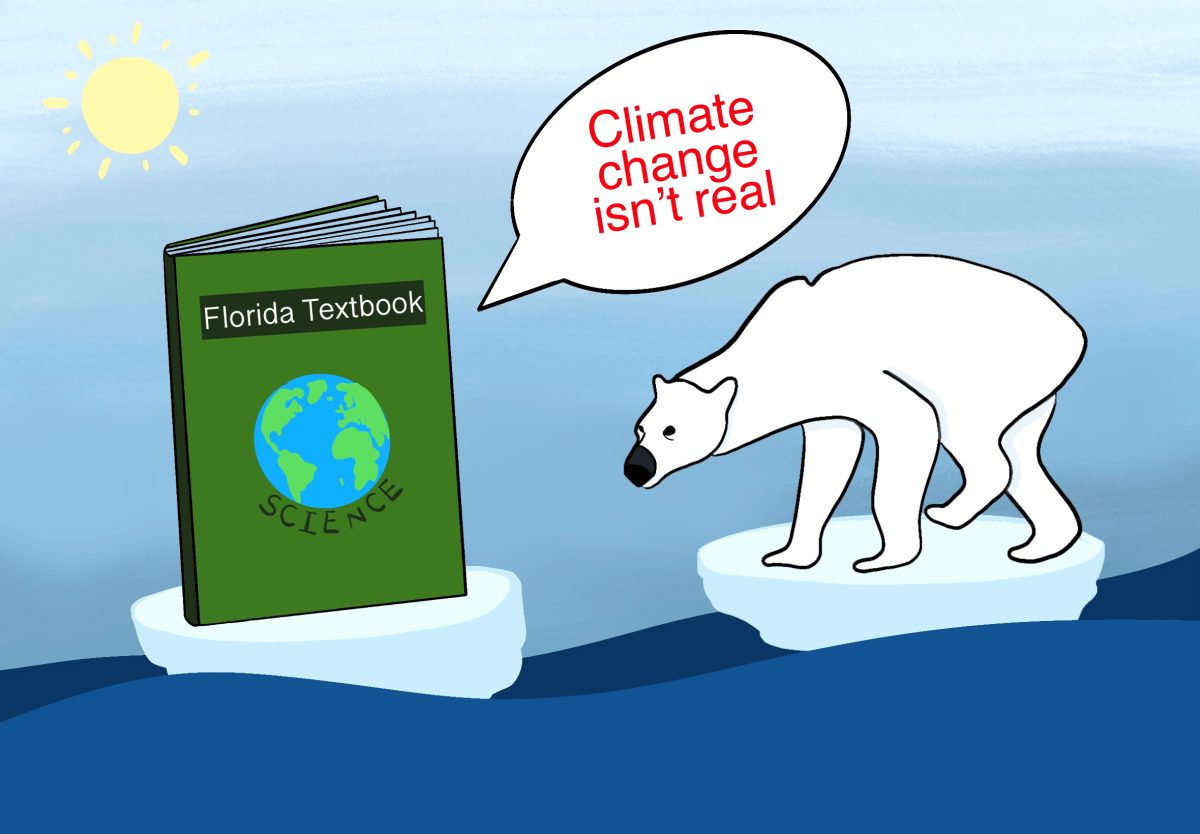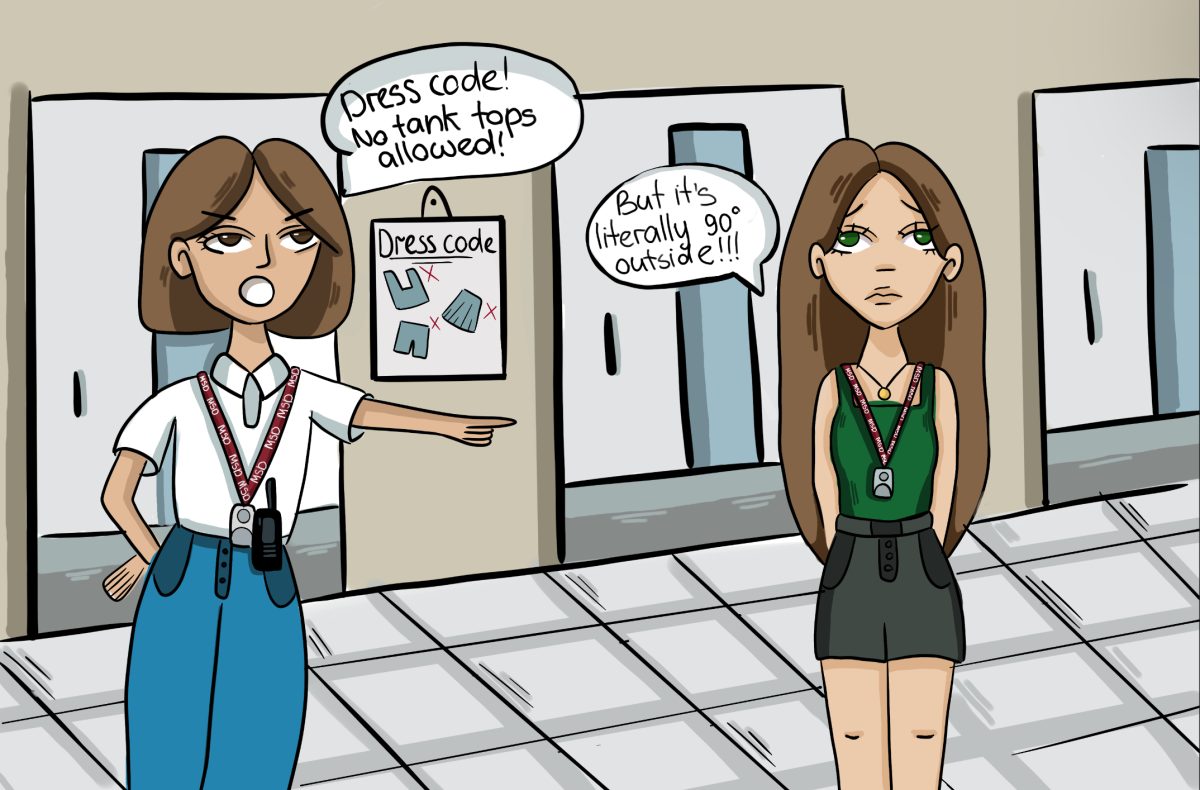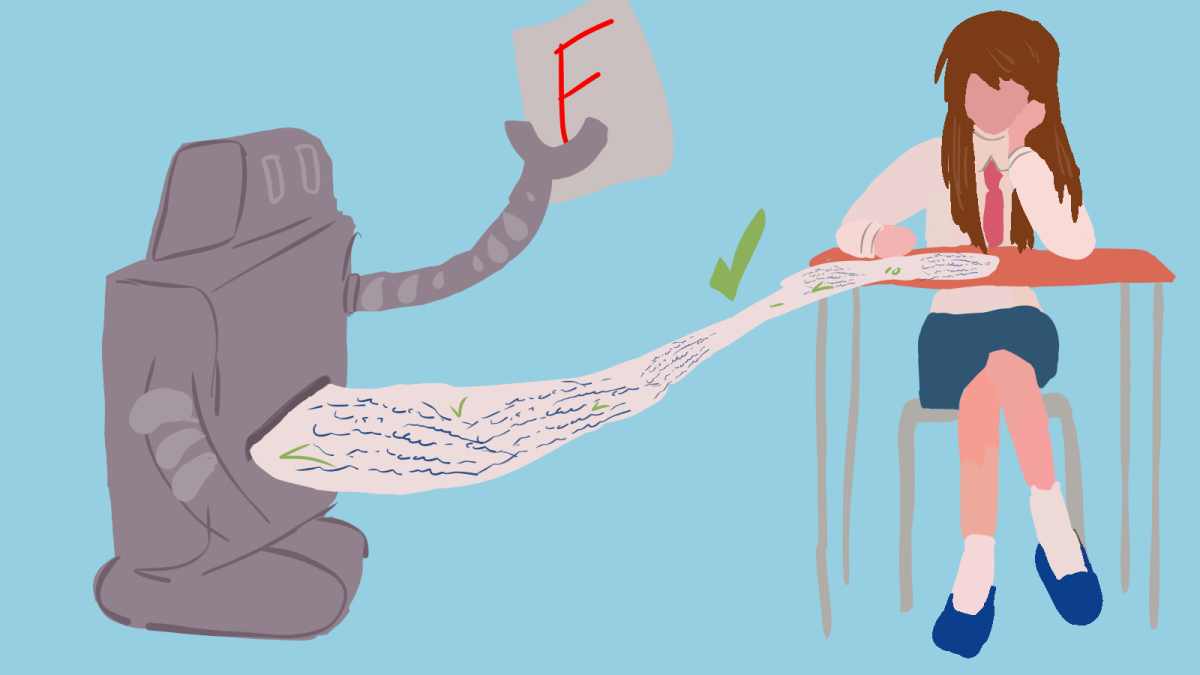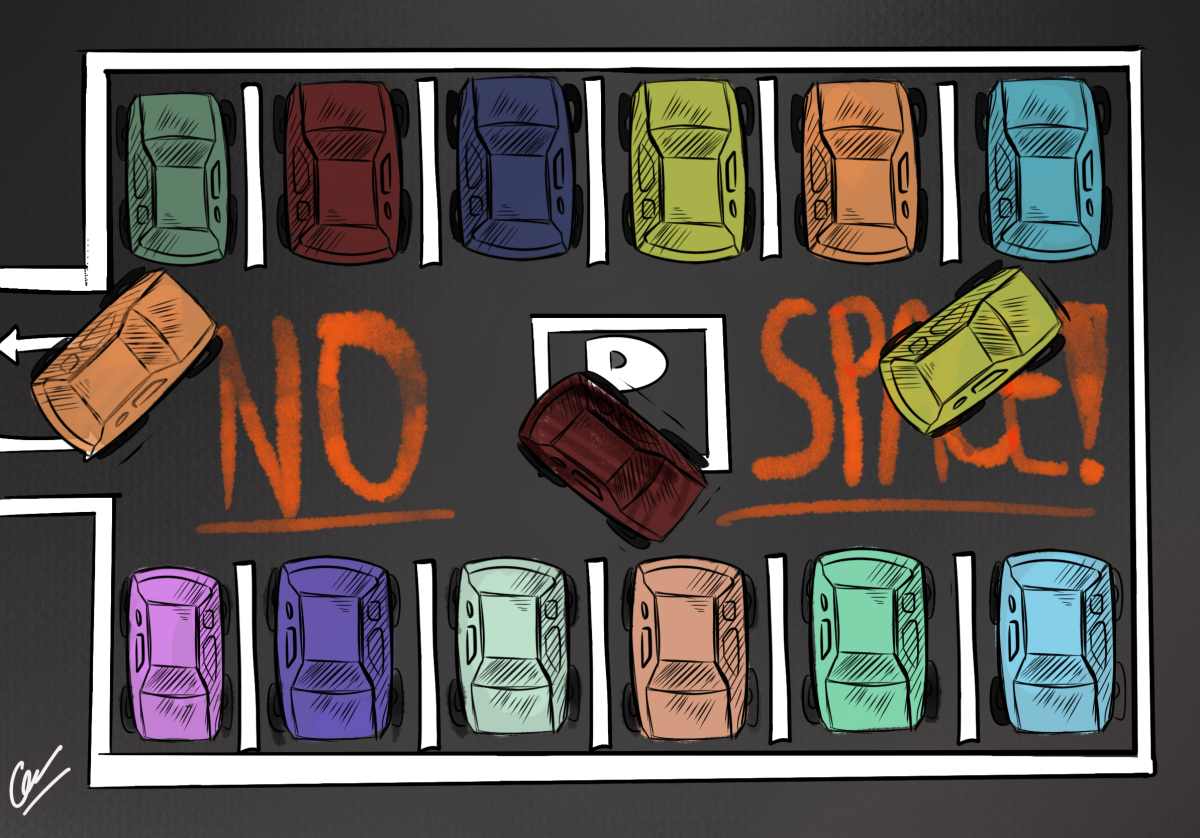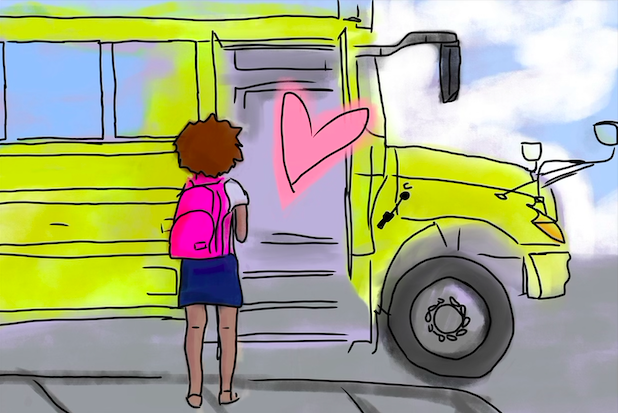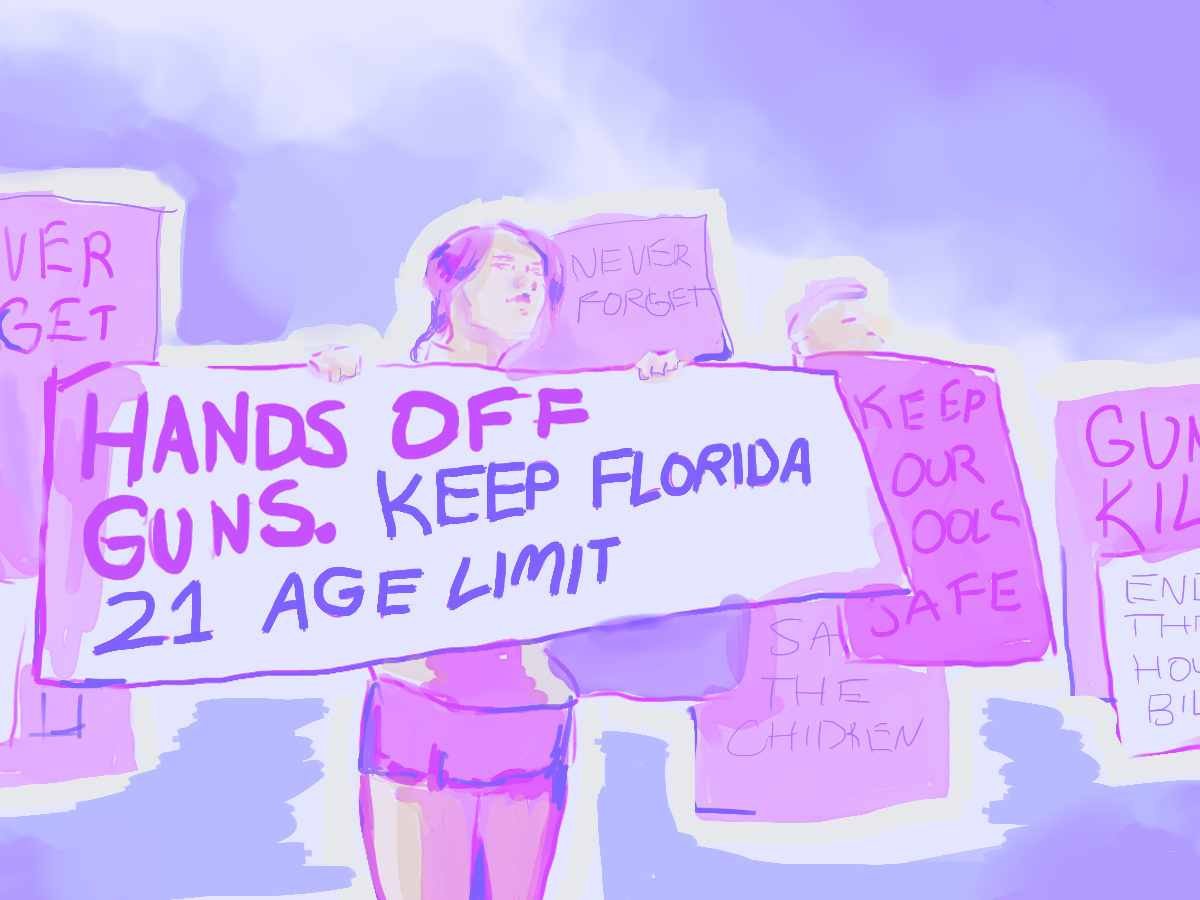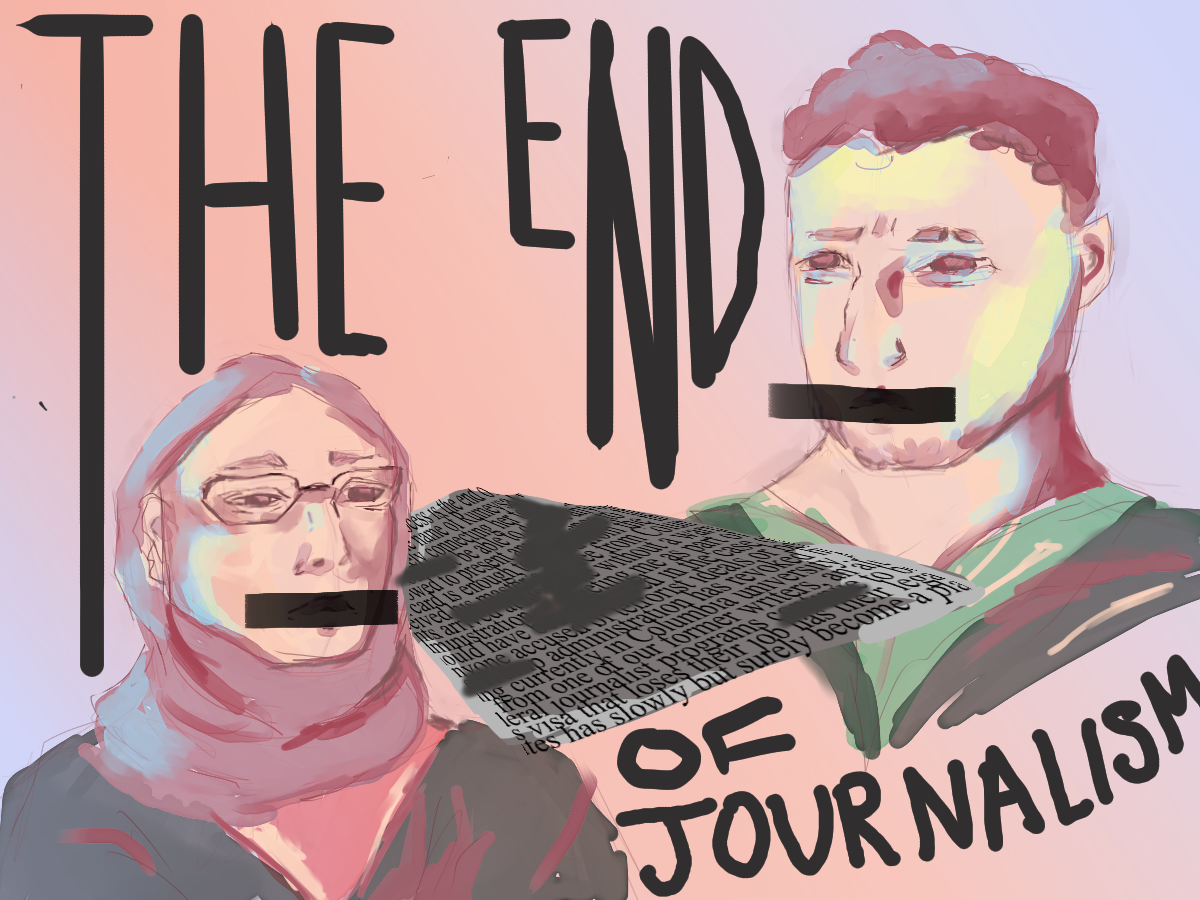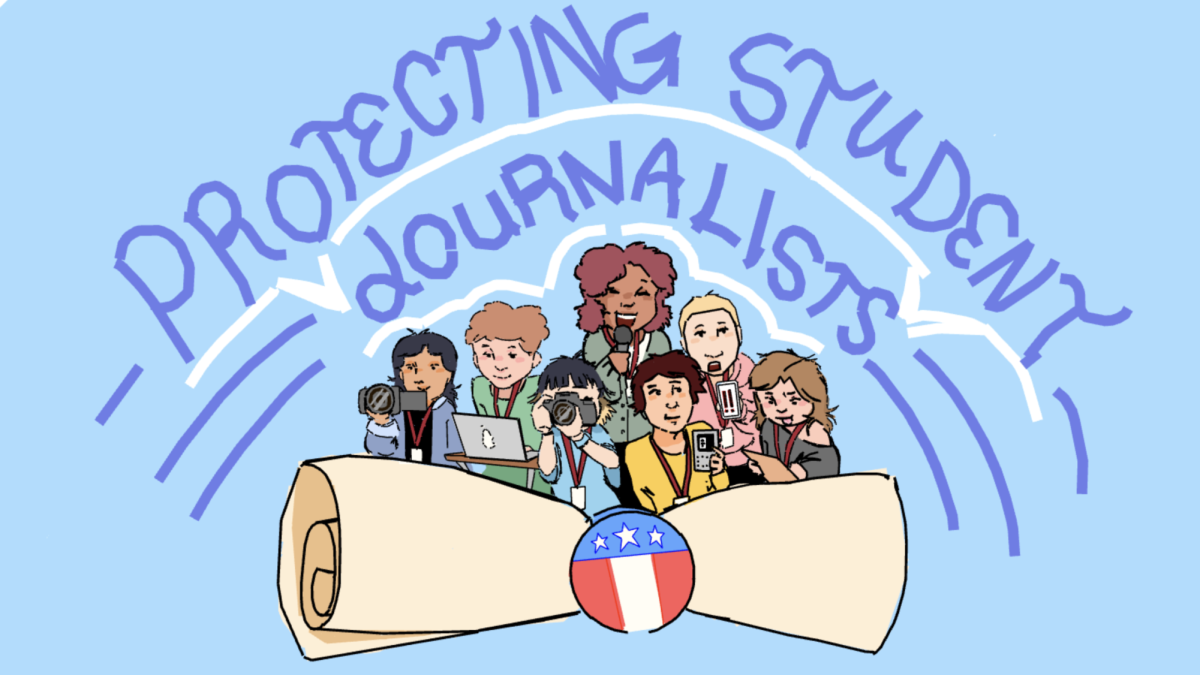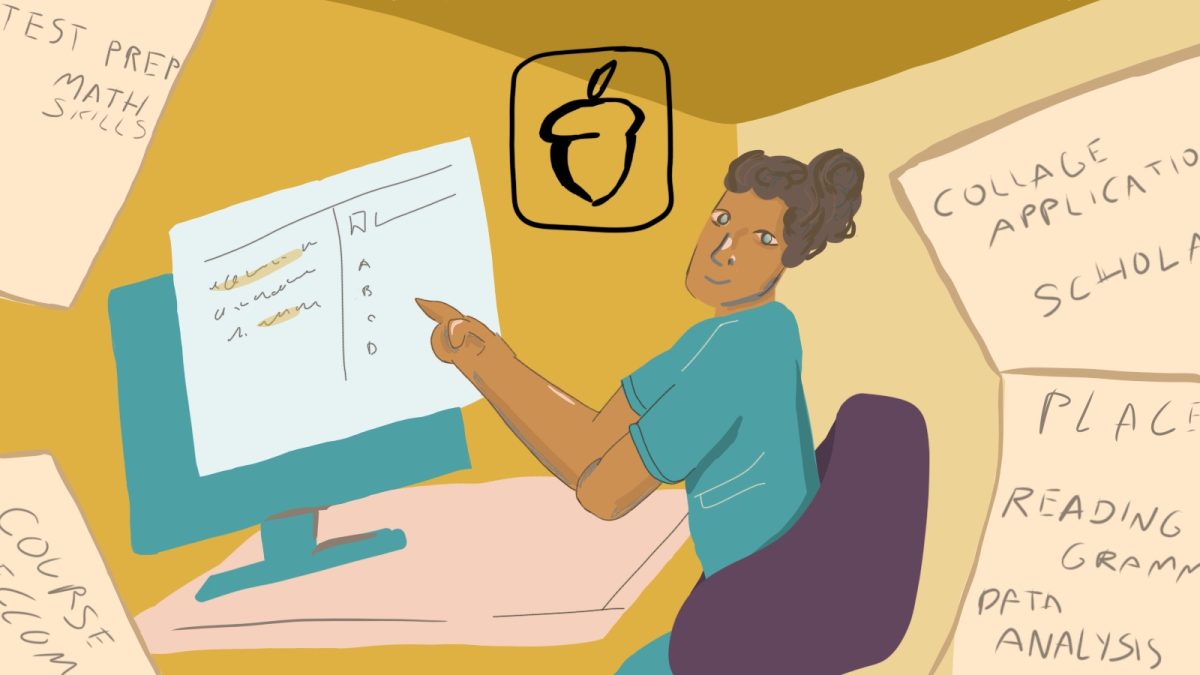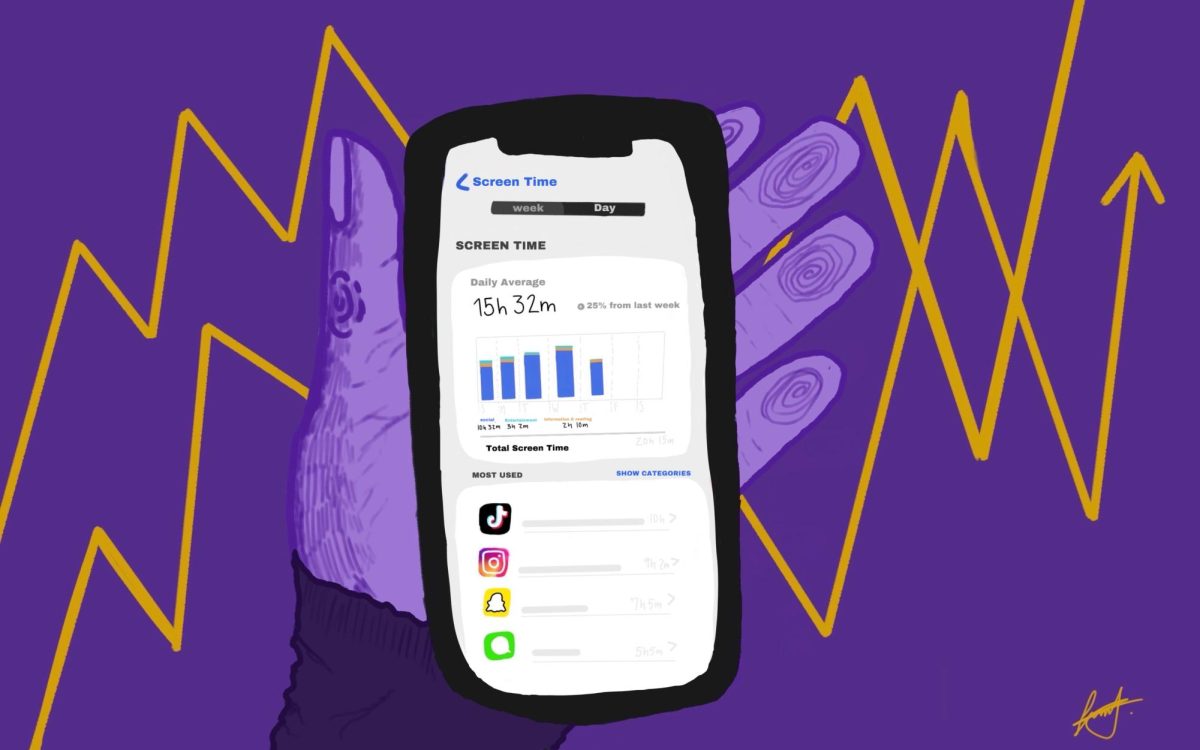Science textbook authors were told by the Florida Department of Education to remove some climate change references in their books, including a chemistry textbook’s 90-page section on climate change and a phrase that urged the government to take action on climate change, according to an Orlando Sentinel report. An educational department spokesperson responded to the article by claiming that Florida collaborates with textbook publishers to guarantee that no product includes “any form of ideology or indoctrination.”
However, when one is denying a fact that is continuously supported with a toppling amount of evidence, they are not restraining “indoctrination” but rather succumbing to ignorance. Censoring an issue as recognized as climate change in school textbooks is robbing students from information that is proven to impact them in the future.
Climate change, or long-term shifts in weather patterns and temperatures, is not an ideology; it is a fact. Since the 19th century, following the Industrial Revolution, earth’s average surface temperature has risen an alarming two degrees Fahrenheit as a result of surging carbon emissions. This has consequently caused ocean acidification, rapidly melting glaciers, shrinking ice sheets and intensifying natural disasters as reported by the National Aeronautics and Space Administration (NASA).
To try and evade this information in science and environmental textbooks is truly disappointing, especially since climate change is responsible for exacerbating humanitarian rights abuses and placing one million species at risk of extinction. The number of species is expected to proliferate to six million in the next 50 years, begging the question of how much worse climate change needs to get for state governments to take it seriously enough not to interfere with its inclusion in educational textbooks.
Florida is already witnessing how global warming increasing ocean temperatures strengthens and intensifies hurricanes. Recent Hurricane Milton gained 90 mph winds in under 24 hours. Despite this, Florida Gov. Ron DeSantis has demonstrated that climate change is not a primary concern for him. He signed House Bill 1645 on May 15, which deletes the words “climate change” from Florida state law and encourages natural gas expansion, among other policies that only facilitate the use of fossil fuels. He wrote on his X, formerly known as Twitter, account that the legislation will “insulate Florida from green zealots.”
It is ironic that the Education Department’s line of reasoning for redacting climate change in textbooks is to intercept political ideologies, when the governor’s conservative beliefs align with the several limitations he imposed on Florida’s education system.
For instance, Advanced Placement Psychology was almost banned for its content regarding sexual orientation and gender identity and DeSantis is known to have implemented some of the strictest anti-LGBTQ+ laws in Florida, such as HB 1557, or the “Don’t Say Gay” law, because of his conservative views. The AP African American course is banned in Florida for containing “critical race theory,” and now climate change is being censored from textbooks.
Political ideologies should not be affecting education, notably not something that is easily corroborated by science. Constant unraveling of new information should be encouraging individuals to direct their focus on finding methods to solve climate change, not downplaying the crisis in school textbooks.
Averting climate change information from textbooks will clearly obstruct students from gaining a clear understanding of the concept that will significantly shape their futures. Current trends in development are environmentally unsustainable; global energy-related CO2 emissions in 2023 reached a new record high of 37.4 billion Tonnes. If carbon emissions persist at their current rate, future generations are bound to endure its environmental consequences.
Governments play a critical role in mitigating climate change consequences as they can create and bolster climate adaptation plans, such as regulating carbon emissions. Thus, the FLDOE should not be censoring climate change references nor cutting authors’ statements urging governments to take action in textbooks. Rather, they should aim for raising awareness on the matter. Climate change is not political; removing mention of this escalating issue from textbooks does not solve the problem, it only encourages students to remain uninformed and unconcerned with the climate crisis.

